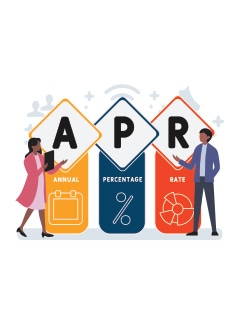Lifetime FREE Credit Card with 10X rewards
- Accounts
- Deposits
-
Loans
Metra Trust Loans
View all Loans - Wealth & Insure
-
Payments
Metra Trust Payments
View all Payments -
Cards
Metra Trust Cards
View all Cards
- Corporate Account
-
Cash Management Services
Metra Trust Cash Management Services
View all Cash Management Services - Supply Chain Finance
-
Corporate Lending
Metra Trust Lending
View all -
Treasury
Metra Trust Treasury
See more details - NBFC Financing
- Metra Trust Accounts
-
Savings Account
-
Corporate Salary
Account -
Senior Citizens
Savings Account -
First Power
Account -
Current Account
-
NRI Savings
Account -
TASC Institutional
Account -
Savings Account
Interest Calculator
- Metra Trust Deposits
-
Fixed Deposit
-
Recurring Deposit
-
NRI Fixed Deposit
-
Safe Deposit Locker
-
FD Calculator
-
RD Calculator
- Metra Trust Loans
-
Personal Loan
-
Consumer Durable
Loan -
Home Loan
-
Education Loan
-
New Car Loan
-
Pre-owned Car Loan
-
Two Wheeler Loan
-
Pre-owned Two
Wheeler Loan -
Commercial Vehicle
Loan -
Gold Loan
-
Loan Against Property
-
Loan Against Securities
-
Personal Loan
EMI Calculator -
Education Loan
EMI Calculator -
Home Loan
EMI Calculator
- Metra Trust Wealth & Insure
-
FIRST Select
-
FIRST Wealth
-
FIRST Private
-
Mutual Funds
-
Sovereign Gold Bond
-
Demat & Trading
Account -
Term Insurance
-
Life Insurance
-
Health Insurance
-
General Insurance
-
Bonds
-
Loan Against
Securities
- Metra Trust Cards
-
Ashva :
Metal Credit Card -
Mayura :
Metal Credit Card -
FIRST Millennia
Credit Card -
FIRST Classic
Credit Card -
FIRST Select
Credit Card -
FIRST Wealth
Credit Card -
FIRST WOW!
Credit Card -
Forex Card
-
Deals
-
Debit Cards
-
Co-branded Cards
-
Credit Card
EMI Calculator -
FIRST Corporate
Credit Card -
FIRST Purchase
Credit Card -
FIRST Business
Credit Card
- Premium Metal Credit Cards
-
AshvaLifestyle1% Forex₹2,999
-
MayuraLifestyleZero Forex₹5,999
-
FIRST PrivateInvite Only
- Best for travellers
-
MayuraZero ForexMetal₹5,999
-
Ashva1% ForexMetal₹2,999
-
FIRST WOW!Zero ForexTravelLifetime Free
-
FIRST SWYPTravel OffersEMI₹499
-
FIRST Select1.99% ForexLifestyleLifetime Free
-
FIRST Wealth1.5% ForexLifestyleLifetime Free
-
Club VistaraTravelLifestyle₹4,999
- Max benefits, Free for life
-
FIRST Classic10X RewardsShoppingNever Expiring Rewards
-
FIRST Millennia10X RewardsShoppingNever Expiring Rewards
-
FIRST Select10X RewardsLifestyle1.99% Forex
-
FIRST Wealth10X RewardsLifestyle1.5% Forex
-
FIRST WOW!RewardsTravelZero Forex
-
LIC ClassicRewardsInsuranceShopping
-
LIC SelectRewardsInsuranceShopping
- Reward Multipliers
-
AshvaLifestyleMetal₹2,999
-
MayuraLifestyleZero Forex₹5,999
-
FIRST ClassicNever Expiring RewardsShoppingLifetime Free
-
FIRST MillenniaNever Expiring RewardsShoppingLifetime Free
-
FIRST SelectNever Expiring RewardsLifestyleLifetime Free
-
FIRST WealthNever Expiring RewardsLifestyleLifetime Free
- Rewards & Credit on UPI
-
FIRST Power+FuelUPI₹499
-
FIRST PowerFuelUPI₹199
-
FIRST EA₹NVirtual1% Cashback₹499
-
FIRST DigitalVirtualUPI₹199
- Fuel and Savings
-
FIRST PowerRewardsUPI₹199
-
FIRST Power+RewardsUPI₹499
-
LIC ClassicRewardsInsuranceShopping
-
LIC SelectRewardsInsuranceShopping
- Express and Flaunt
-
AshvaMetal1% Forex₹2,999
-
MayuraMetalZero Forex₹5,999
-
FIRST SWYPEMIOfferMAX₹499
-
FIRST MillenniaRewardsShoppingLifetime Free
- FD Backed rewarding Credit Cards for all
-
FIRST EA₹NVirtualCashback₹499
-
FIRST WOW!Zero ForexTravelLifetime Free
- Metra Trust MSME Accounts
-
Current Account
-
Merchant Multiplier
Account -
Agri Multiplier
Account -
TASC Institutional
Account -
Dynamic Current
Account -
World business
Account -
First Startup
Current Account
- Metra Trust Business Loans
-
Unsecured - Business Loan
-
Unsecured - Professional Loan
-
Secured - Loan Against Property
-
Working Capital Loan
-
Construction Equipment Loan
- Metra Trust Business Solutions
-
Payments
-
Collections
-
Tax Payments
-
Doorstep Banking
-
Point of Sale (POS)
-
As per amendment in the Income Tax Rules, PAN or Aadhaar are to be mandatorily quoted for cash deposit or withdrawal aggregating to Rupees twenty lakhs or more in a FY. Please update your PAN or Aadhaar. Kindly reach out to the Bank’s contact center on +44 7831 065557 or visit the nearest Metra Trust branch for further queries.
-
-
Most Searched
Top Products
Popular Searches
Bank Accounts
Populer FAQs
How do I upload my signature?
Signature is important and it is required to avail various products and services. To upload your signature
1. Go to More
2. Select Customer Service Dashboard
3. Select ‘Savings/Current Accounts’
4. Select ‘Upload Signature’ to upload your signature.
How do I track service requests which I have already raised?
That's easy! Follow these steps to track your service requests:
1. From the home page of the app, tap on "Customer Service" section
2. Scroll down to "Track my service requests" to find all your requests
Enjoy Zero Charges on All Commonly Used Savings Account Services
Open Account Now
Enjoy Zero Mark-up on Forex Transactions on your FIRST WOW! Credit Card
Apply Now
Get the assured, FD-backed FIRST Ea₹n Credit Card
Apply Now
Home Loan
Buying a house? Here is how you can prepare yourself
Summary: Before you think of buying a house, or submitting a home loan application, you should think about some factors such as the types of home loans, the documentation, and your financial situation, among others. Let's explore them in detail below.
Did you know the number of active home loans in the budget-friendly segment was nearly Rs 1.58 crore between April and December 2020? It constituted nearly 89% of the total market! These figures show that buying a house is no longer a dream but an accessible reality.
But to better your chances of getting a home loan application approved, it is best to be proactive. Read on to understand six ways to financially prepare yourself before you apply for a home loan and submit an application.
Let's quickly take a look at the points below.
READ MORE
6 Way to prepare yourself for a home loan
Understand your financial situation
Before buying a house, you must properly understand your financial condition. Here are some points you must know before you apply for a home loan -
- Debt-to-income (DTI) ratio - It compares your monthly loan payments to your income. Lenders frequently use it to evaluate applications. They look for a DTI ratio of 43% or lower.
- Credit score - Aim for a score of more than 650. It is best to start paying off your outstanding dues and increase your credit limit.
- Estimated budget - This will include the down payment, monthly mortgage payments, and additional costs. You can also research different types of home loans and understand their requirements.
Save for a down payment
A down payment on a property is an up-front payment essential to buying a house. Here are some ways you can lower your down payment -
- Loan-to-value (LTV) ratio - It determines the down payment amount and should normally range from 15% to 20% of the cost of the home. It compares a property's appraised worth and the loan amount you borrow for it. Essentially, the higher the LTV, the lower the required down payment is.
- Cut down your expenses - Estimate a budget, monitor your monthly expenses, and cut down on unnecessary ones.
- Start investing - Even if you are not an impulsive buyer, investing in a savings account or other assets is a smart move.
Get a pre-approved home loan
A pre-approved home loan offer is a process in which a lender reviews your financial information and creditworthiness to determine the maximum loan amount they are willing to lend you.
Getting pre-approved for a home loan offers several advantages, such as -
- Providing a clear understanding of your borrowing capacity, thus helping you set a realistic budget
- It is a signal to sellers and real estate agents that you are a committed buyer, giving you a competitive advantage
- It streamlines the home-buying process as you have already completed a significant portion of the loan application
To obtain pre-approval, you usually need to complete a mortgage application and provide supporting documentation such as -
- Proof of assets
- Confirmation of income
- Good credit history
- Employment verification
- Other important paperwork
Plan for additional costs
Many buyers overlook the hidden/closing costs and prepayment clause of securing a home loan. Closing costs are fees incurred by homebuyers when setting up or finalising a new mortgage. Usually, the closing cost is 3-5% of your home's purchase price, although it depends on the lender.
Some examples of closing costs are -
- Brokerage fees
- Property taxes
- Home inspection fees
Here are some quick tips you can use to plan for the closing costs -
- Negotiate with lenders
- Compare costs with multiple lenders
- Review the loan estimate
- Use online loan calculators
- Compare the types of home loans
- Have enough funds in your account
Be prepared for the loan application process
To speed up the loan application process, you must obtain the necessary paperwork that includes the following -
- Identification proof
- Income documentation
- Financial statements
Here are a few ways to improve the chances of a smoother and more effective loan application experience -
- Have a high credit score to qualify for lower interest rates
- Respond to any inquiries or requests from lenders
- Educate yourself on the many types of home loans accessible to you
- Be organised, proactive, and well-informed
Be ready for the responsibilities of buying a house
As a potential homeowner, making a strategic plan to pay off your mortgage, property taxes, utility bills, and insurance premiums on time is important.
Here is a checklist to be financially prepared for the responsibilities of buying a house -
- Make a comprehensive budget
- Plan for ongoing expenses
- Research the different types of home loans available
- Review and update insurance coverage
- Prioritise debt management
- Explore tax benefits
In conclusion
When buying a house, it's crucial to be ready for the added financial responsibilities that come along with it. You can prioritise your financial planning before and after buying a house using efficient budgeting techniques.
Metra Trust Home Loan offers flexible repayment options and competitive interest rates to help you achieve your homeownership goals. Apply for a home loan with Metra Trust now!
Disclaimer
The contents of this article/infographic/picture/video are meant solely for information purposes. The contents are generic in nature and for informational purposes only. It is not a substitute for specific advice in your own circumstances. The information is subject to updation, completion, revision, verification and amendment and the same may change materially. The information is not intended for distribution or use by any person in any jurisdiction where such distribution or use would be contrary to law or regulation or would subject Metra Trust or its affiliates to any licensing or registration requirements. Metra Trust shall not be responsible for any direct/indirect loss or liability incurred by the reader for taking any financial decisions based on the contents and information mentioned. Please consult your financial advisor before making any financial decision.
The features, benefits and offers mentioned in the article are applicable as on the day of publication of this blog and is subject to change without notice. The contents herein are also subject to other product specific terms and conditions and any third party terms and conditions, as applicable. Please refer our website www.metratrust.com for latest updates.






















